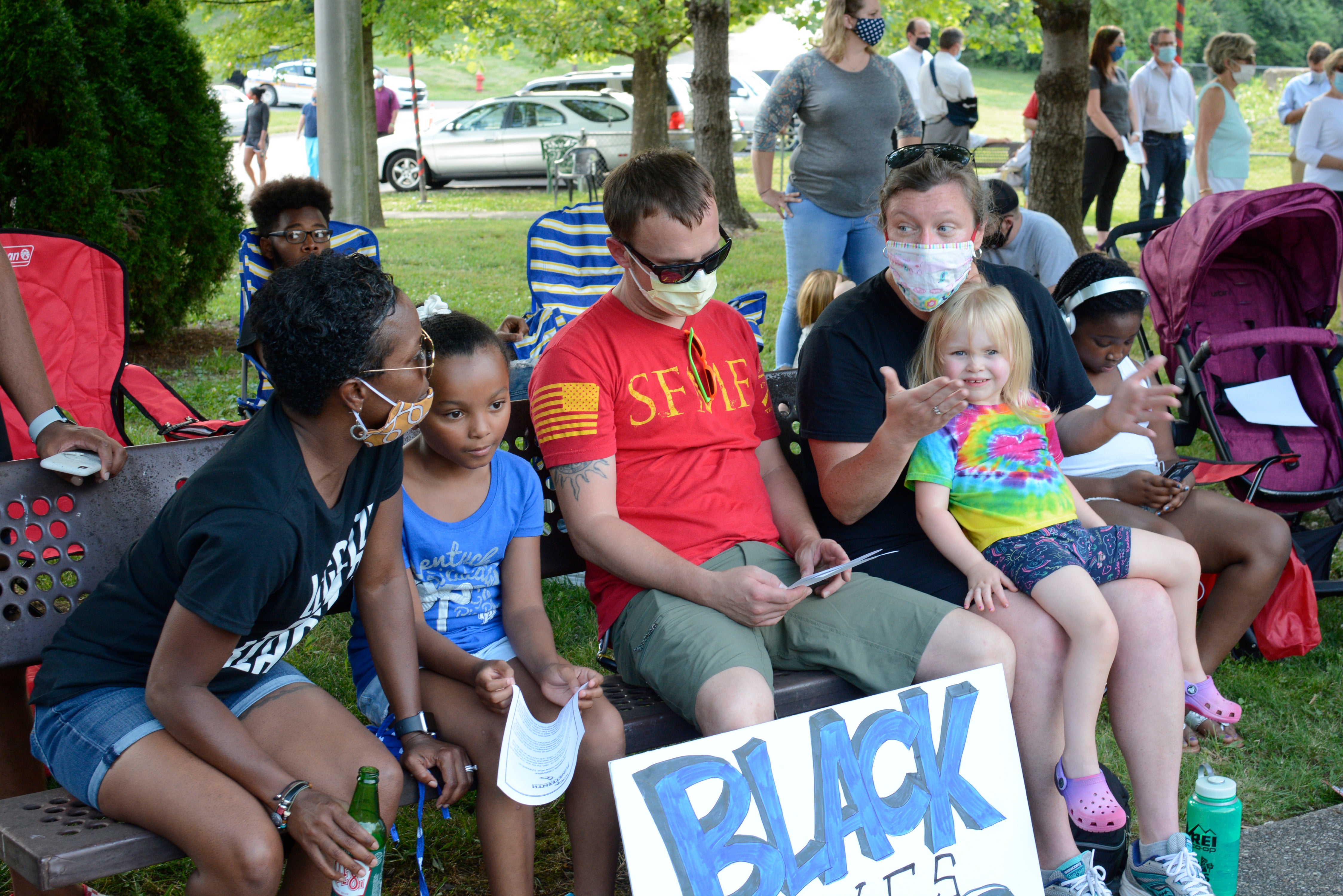Walking together – Diverse group celebrates unity on Juneteenth
Published 8:30 pm Friday, June 19, 2020
|
Getting your Trinity Audio player ready...
|
The Rev. Marvin King cast a vision that next summer, Juneteenth will be a celebration for all people in Winchester of every ethnicity.
“Next year we will line the streets of Winchester,” and enjoy music and food of different cultures, “because we are better together … and we are standing up for unity,” the pastor of First Baptist Church on Highland Street said during a rally Friday evening at Heritage Park.
King was the keynote speaker for the gathering that followed a Together for Justice march from the Clark County Courthouse to the park on Washington Street.
A racially diverse crowd of more than 150 people participated in the march and commemoration of the day in 1865 when formerly enslaved people in one of the most remote areas of the former Confederacy, Galveston, Texas, learned from a Union Army general that they were free — more than two years after President Abraham Lincoln signed the Emancipation Proclamation actually freeing them.
Regarding the large number of white people in the audience, King, who grew up near Galveston, said many who of those present didn’t really understand what they were celebrating.
For black people in the South, Juneteenth is a day of family gatherings, barbecues, games and “old school music,” he said. For them, it is more a celebration of freedom than the Fourth of July, King said, because in 1776, his people were not free.
King alluded to a new American revolution, sparked by the killing of Breonna Taylor, George Floyd, Ahmaud Arbery, Rayshard Brooks and others.
“Many of us are gathered here because we want to see an end to racism, injustice and inequality, to recognize the reality that every individual, regardless of your race, color, ethnicity or sexual orientation, has value, has purpose. And the reality is that we are better together,” he said, emphasizing the theme of the celebration, which was organized by Winchester Better Together and the Winchester Black History and Heritage Committee.
King gave examples of what he said was “institutional racism,” such as blacks being rejected for loans at twice the rate of whites, gentrification that involves investors buying low in a depressed real estate market and then charging exorbitant rents.
Robert Conner of Winchester, who is black, said the multi-ethnic celebration he was witnessing would not have happened last year.
“I think now we are seeing things as they really are,” he said. “We can’t close our eyes and pretend that it’s not there.”
“If we want change, it’s going to take everybody,” Conner said. “We can’t stay silent no more.”
Ron Kibbey, who is white, said it was good to see so many people from different backgrounds gathered together “in a friendly spirit” for a common purpose.
Tiffany Fletcher, a white woman, stood on the steps of the courthouse just before the march, holding a sign that said: “I could never understand, but I can help take a stand.”
As a white person, she explained, it was hard for her to fathom the systemic racism that people of color face in this country, but that she is “willing to shut up and listen and help in any way I can.”
Until this year, Fletcher said, she didn’t know what Juneteenth was about.
“It tells you a little bit about who writes the history,” she said.
Joyce Morton, a black woman, said marching for justice was nothing new for her.
“In 1964, as a sophomore, I walked with Martin Luther King in Frankfort. Two years later, I walked down Main Street when the Police Department killed Collie Hampton,” she said, mentioning the fatal shooting of a black man in his home on Aug. 14, 1966.
In 2014, Morton took part in a 50th anniversary Martin Luther King celebration march, she said.
In 2020, she was marching again.
“The same issues are there,” she said, and they signify a “problem of the heart.”
Referring to statues that her people had walked past for years, she said: “We can’t undo history, but we can do better,” she said.
Morton said she was pleased so many white people are now trying to understand, and that the change in thinking had come to her hometown.
“I’m so happy to see this in Winchester,” she said.







